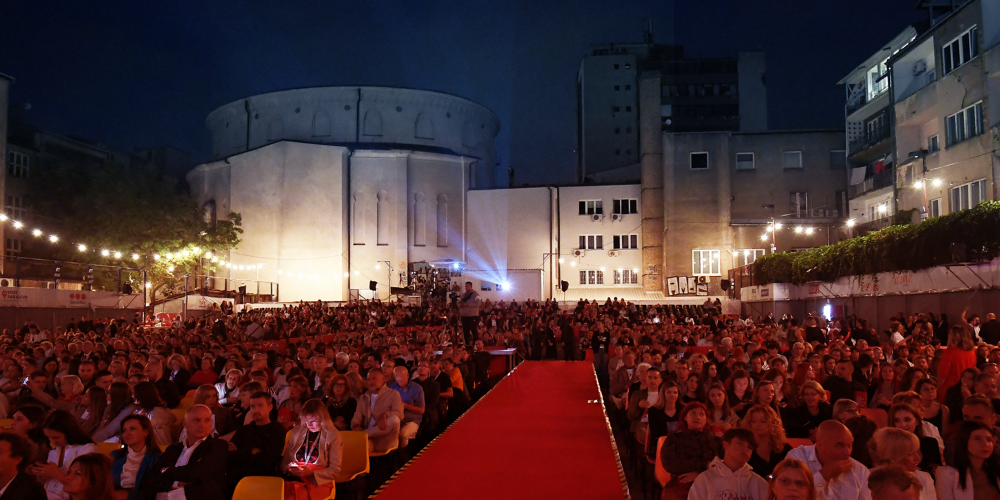Over the course of three decades, the Sarajevo Film Festival has made a name for itself and managed to turn into a summer event more than capable of living up to its glitzier colleagues. It has even built up a list of frequent visitors that boasts the likes of Stellan Skarsgård, the Swedish acting giant (in more ways than one) who returns this year to receive the Honorary Heart of Sarajevo and accompany the national premiere of Joachim Trier’s Cannes darling Sentimental Value.
His fellow honorees at Sarajevo 2025 are Willem Dafoe, who’s on a veritable festival tour, his trip to Sarajevo landing right in between Locarno and Venice; Italian director Paolo Sorrentino, who’s also Lido-bound in the coming days with his latest film, once again starring his artistic partner in crime Toni Servillo; and British character actor Ray Winstone. It’s an interesting choice of guests for the festival’s honorary awards: three thespians who enjoy playing characters with darker sides, and a director with a fascination for the more grotesque facets of his home country, an artistic path that famously culminated – internationally, at least – with the Oscar for the fresco of Roman debauchery that was The Great Beauty.
Another illustrious figure is jury president Sergei Loznitsa, who will be in charge of judging the Feature Film Competition. Said selection consists of works such as White Snail from Austrian filmmaking duo Elsa Kremser and Levin Peter; Serbian-Italian sex comedy Sorella di clausura, directed by Ivana Mladenovic; and Croatian period piece God Will Not Help, helmed by Hana Jusic. All three are shining examples of contemporary European cinema seldom seen outside of the festival circuit, sure to receive a much appreciated boost through the Sarajevo spotlight right after their successful Locarno debuts.
Also rarely seen in regular cinemas, albeit largely because of the nature of the projects themselves, is the oeuvre of director Ilya Khrzanovskiy, born in Russia but residing in other countries since 2007. The retrospective of his work includes the monumental and fascinatingly insane DAU extravaganza, which most memorably screened at the Berlinale in 2020 with two films, one of which was six hours long. Five years later, the ambitious multidisciplinary undertaking is arguably even more topical in its depiction of a past that feels disturbingly present, which makes it a prime choice for Sarajevo’s programming, given the festival’s commitment to screening films that deal with the past in order to spark debate about current times.
Whether it’s remembering Srebrenica (with no less than two films on the subject, including the Swiss documentary The Boy from the River Drina), revisiting the 1919 occupation of Fiume (Fiume o morte!), or shining a new light on the situation in Gaza (Put Your Soul on Your Hand and Walk, which continues its fruitful and harrowing journey on the festival circuit after Cannes and Karlovy Vary), tragic realities across all periods of time are part of the festival’s backbone, and bound to generate interesting discussions for the duration of the event.
In other words, by showcasing these and many other titles across sections and timelines, Sarajevo confirms its mission to keep its finger on the pulse of contemporary filmmaking and spotlight an eclectic, rich array of films marked by urgency and strong auteur voices. Be it in the traditional cinemas or the open air venue, the fest sets out to get to the heart of the matter, meaningfully signaling the end of the “smaller” summer season before the glossier double bill of Venice and Toronto.



